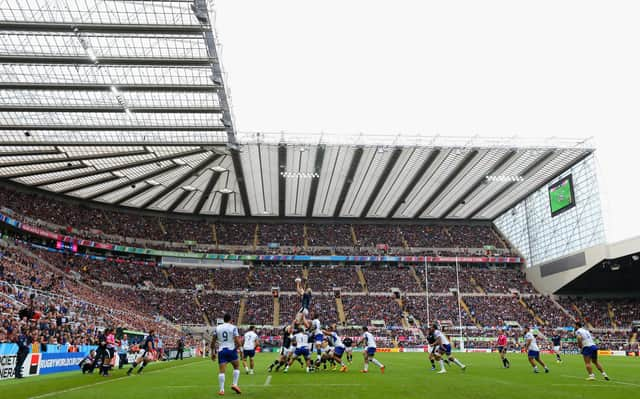Six Nations: Sir Ian McGeechan calls for Scotland matches to be played in England should restrictions continue - including Calcutta Cup


At present, only 500 people are allowed to attend professional sporting events. The rules were brought in last month amid rising omicron coronavirus cases and while First Minister Nicola Sturgeon announced that the planned end date would be Monday, January 17, there are fears this may be extended with numbers still going up.
The Scottish Government will take a view on the situation next week but should another three-week period be brought in, then Scotland’s opening Six Nations clash with England on Saturday, February 5 would only have a maximum of 500 spectators present for one of the showpiece matches of the tournament. Scotland are also due to host France on Saturday, February 26.
Advertisement
Hide AdAdvertisement
Hide AdThe Scottish Rugby Union had decided to play the Glasgow v Edinburgh 1872 Cup matches within the affected window without fans before they were called off due to Covid cases, while Wales also have closed-doors restrictions on sporting matches. They are due to host Scotland in Cardiff on Saturday, February 12.
McGeechan has suggested using venues such as St James Park in Newcastle for the Calcutta Cup, with currently no restrictions on crowd numbers in England. Newcastle United’s stadium was used for the 2015 World Cup, with Scotland facing South Africa and Samoa there.
Writing in his Daily Telegraph column, former Scotland internationalist and coach McGeechan said: “No one wants to see the Six Nations go behind closed doors again. Last year’s championship was a pretty soulless affair, and it has been wonderful to see crowds back in stadiums again in recent months.
“In an ideal world, that is what we would have over the next few months. But this is not an ideal world. It is an ever-changing situation and going behind closed doors might ultimately prove to be the ‘least worst’ option.
“It would certainly be preferable to cancelling the championship or trying to shoehorn it into a non-existent space in the calendar.
“Remember the vast majority of fans who enjoy the Six Nations are not at the stadiums but rather watching on TV. And playing behind closed doors would obviously mean they could continue to do so, while allowing unions to get the much-needed television money.
“But I would like to see the Six Nations exhaust all possibilities first, to allow as many fans as possible to attend. Crowds are what give games energy.
“The possibility of moving matches to English venues is certainly intriguing. For Scotland, where the maximum capacity at outdoor games is 500, and Wales, where no fans are allowed at all, the possibility of playing at St James’ Park or the Ricoh Arena would surely be preferable. And there are currently no legal restrictions preventing fans from crossing the border.
Advertisement
Hide AdAdvertisement
Hide Ad“It would require sign-off by the respective governments. And it is difficult to see how the Scottish government, in particular, would allow it given it recently tried to stop families crossing the border to celebrate New Year’s Eve. But it is worth a conversation.
“For Ireland and France, the situation would be trickier still given travel restrictions, particularly in France. But again it would be worth a conversation. They might prefer to have full houses abroad than sparse crowds at home. Last year’s Rugby Championship even highlighted the possibility of hosting a tournament in one country alone (rounds three to six were all played in Queensland), keeping the players in bubbles throughout.
“That was by all accounts mentally very draining for the players, staying in bubbles for such a long time. You could investigate hosting the Six Nations over a shortened time – six consecutive weekends – to mitigate against that, although that brings problems in terms of recovery and so on.
“Time is running out to organise anything like this. And there would be valid questions of fairness for fans who have bought tickets to home games on specific dates, and for teams who would not be playing at home. England would also have the huge advantage of playing their home games at Twickenham in front of a full house.
“But the possibility must surely be explored, at least for Wales and Scotland. As a player, given the choice of playing in an empty stadium at Murrayfield or a full house of Scots just over the border, I know which I would have chosen.”
